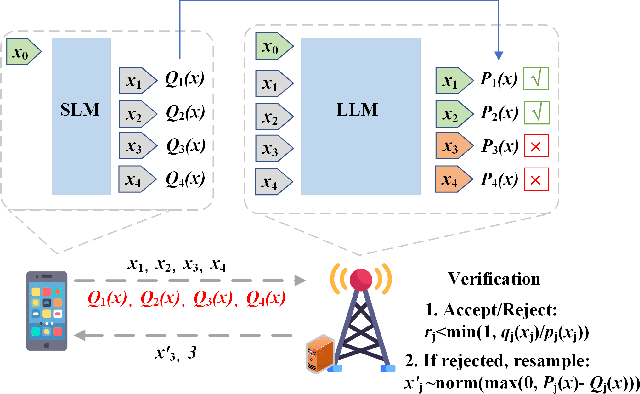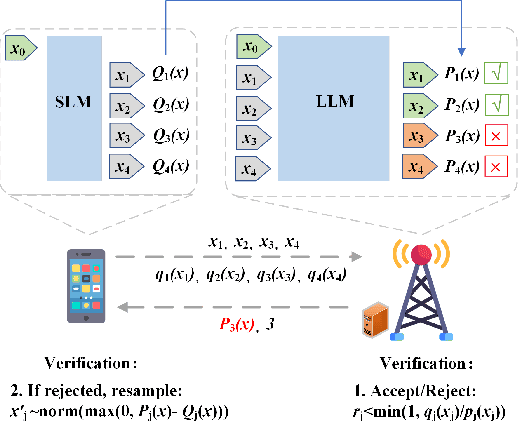Jiahong Ning
DSSD: Efficient Edge-Device Deployment and Collaborative Inference via Distributed Split Speculative Decoding
Jul 16, 2025



Abstract:Large language models (LLMs) have transformed natural language processing but face critical deployment challenges in device-edge systems due to resource limitations and communication overhead. To address these issues, collaborative frameworks have emerged that combine small language models (SLMs) on devices with LLMs at the edge, using speculative decoding (SD) to improve efficiency. However, existing solutions often trade inference accuracy for latency or suffer from high uplink transmission costs when verifying candidate tokens. In this paper, we propose Distributed Split Speculative Decoding (DSSD), a novel architecture that not only preserves the SLM-LLM split but also partitions the verification phase between the device and edge. In this way, DSSD replaces the uplink transmission of multiple vocabulary distributions with a single downlink transmission, significantly reducing communication latency while maintaining inference quality. Experiments show that our solution outperforms current methods, and codes are at: https://github.com/JasonNing96/DSSD-Efficient-Edge-Computing
EdgePrompt: A Distributed Key-Value Inference Framework for LLMs in 6G Networks
Apr 16, 2025Abstract:As sixth-generation (6G) networks advance, large language models (LLMs) are increasingly integrated into 6G infrastructure to enhance network management and intelligence. However, traditional LLMs architecture struggle to meet the stringent latency and security requirements of 6G, especially as the increasing in sequence length leads to greater task complexity. This paper proposes Edge-Prompt, a cloud-edge collaborative framework based on a hierarchical attention splicing mechanism. EdgePrompt employs distributed key-value (KV) pair optimization techniques to accelerate inference and adapt to network conditions. Additionally, to reduce the risk of data leakage, EdgePrompt incorporates a privacy preserving strategy by isolating sensitive information during processing. Experiments on public dataset show that EdgePrompt effectively improves the inference throughput and reduces the latency, which provides a reliable solution for LLMs deployment in 6G environments.
 Add to Chrome
Add to Chrome Add to Firefox
Add to Firefox Add to Edge
Add to Edge